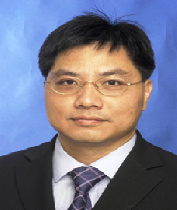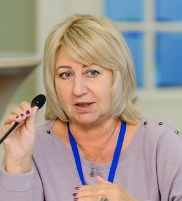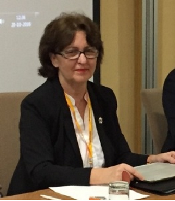Biography
Professor WK Tang was appointed to professor in the Department of Psychiatry, the Chinese University of Hong Kong in 2011. His main research areas are Addictions and Neuropsychiatry in Stroke. Professor Tang has published over 100 papers in renowned journals, and has also contributed to the peer review of 40 journals. He has secured over 20 major competitive research grants, including Health and Medical Research Fund, reference number: 02130726. Health and Medical Research Fund, reference number: 01120376. National Natural Science Foundation of China, reference number: 81371460. General Research Fund, reference number: 474513. General Research Fund, reference number: 473712. He has served the editorial boards of five scientific journals. He was also a recipient of the Young Researcher Award in 2007, awarded by the Chinese University of Hong Kong.
Research Interest
Addictions and Neuropsychiatry in Stroke
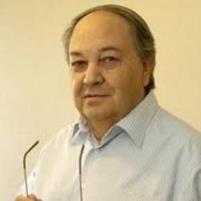
Ricardo B. Maccioni
Professor
Neurology, University of Chile Director of the Neurosciences Lab and Director of the International Center for Biomedicine (ICC).
Chile
Biography
Doctor Ricardo B. Maccioni is a Professor of Neurology at the Medical School, and Professor of Neurosciences, University of Chile. He also serves as the Director of the Laboratory of Molecular Neurosciences, Scientific Director of the International Center for Biomedicine (ICC) and Senior Investigator of the Brain/Mind Program in Chile. He has served as Associate Professor at the University of Colorado Medical School, Denver, U.S.A. He received his doctoral degree in 1975, and was a postdoctoral fellow at the National Institutes of Health, the University of Colorado Health Sciences Center, U.S.A. and a visiting scholar at the Max Plank Institute for Biophysics in Germany. Maccioni is a world class scientist that has made some of the world leading contributions to the cell biology of neuronal cells, the study of Alzheimer’s disease and the neurological study of consciousness phenomenon. His discoveries on the role of tau protein in the pathogenesis of this disease, his neuroimmunomodulation theory of neurodegenerative disorders, the design of a new in vivo neuroimaging technology, novel biomarkers for its early diagnosis and innovative approaches for the treatment of this disease, are among his major contributions. On the basis of these and numerous other findings, he has been considered among the world leading investigators in Alzheimer´s disease. He is currently invited as Keynote speakers of major meeting in neuroimmunology and neurology. Dr. Maccioni was ranked among the Chilean scientists with the highest impact factor in a recent study on science productivity. He has served as Senior Editor and Regional Editor of the Journal of Alzheimer´s Disease, and the board of J. Alzheimer´s Reports, Open Neurology, Journal of Neurochemistry, Therapeutic Advances in Chronic Diseases, Frontiers in Dementia and Archives of Medical Research. He is co-author with George Perry of the recent book “Current Hypotheses and Research Milestones in Alzheimer´s Diseaseâ€, among other 12 books in this medical field. Maccioni is considered by the scientific community as a natural leader for his solid publications, but also for directing global projects for science development and human welfare. Maccioni has made outstanding achievements in the training of 61 young scientist, and is the author of 146 publications in high-impact journals and 18 patents. His scientific findings are characterized by innovative approaches to elucidate complex problems of modern medical research. He has received more than sixty research grants and several international prizes, including awards from the Alzheimer´s Association, the Milheim Award in Medicine, Presidential Chair in Science, Chacellor´s medal of the University of Chile, and Doctor Honris causa at several universities. His leadership is further attested by being the founder of IMBO (Ibero-American Molecular Biology Organization), the Millennium Institute CBB, and the International Center for Biomedicine, a world class center of excellence. He has organized over forty international meetings with prominent neuroscientists from all over the world. In the field of technological innovation he has made contributions in monitoring new molecules for the treatment of Alzheimer´s disease. He is a also member of the Innovation Circle of ICARE in Chile, the National Academy of Sciences, Scientific Director of Neuroinnovation and advisor for several important scientific institutions. He is also an elected member of the Danna Alliance for Brain Inititives.
Research Interest
Alzheimer’s disease, neurodegenerative disorders
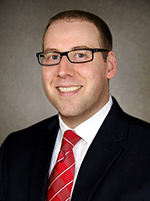
Peter A. DePergola II
Director of Clinical Ethics, Baystate Health;
Research Scientist in Neuroethics, American Academy of Neurology
USA
Biography
Director of Clinical Ethics, Baystate Health; Assistant Professor of Medical Humanities, College of Our Lady of the Elms; Assistant Professor of Medicine, University of Massachusetts School of Medicine; Adjunct Assistant Professor of Medicine, Tufts University School of Medicine Lecturer in Philosophy, Theology, and Religious Studies, Sacred Heart University; Research Scientist in Neuroethics, American Academy of Neurology; Member, Council of Neuroethics Program Leaders; Early Career Scholar, International Neuroethics Society;
Research Interest
Areas of Expertise: Neuroethics; Clinical bioethics; Philosophical bioethics; Theological bioethics; Moral axiology; Moral psychology; Moral epistemology; Metaethics; Research Focus: Dr. DePergola's current research explores the neurophilosophical and neurotheological relationships shared between autobiographical memory, emotional rationality, and narrative identity in light of contemporary capacities in cognitive manipulation, particularly as it relates to ethical decision making and the metaphysics of hope.

